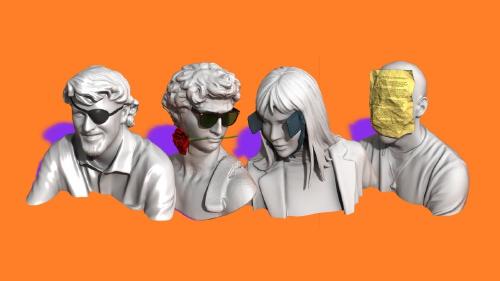We believe ourselves to be logical and judicious people who carefully analyze all the factors in the environment. However, we incur in cognitive biases, errors of thought and perception that lead us to interpret reality inconsistently. How well do we process the information that surrounds us?
Approach to cognitive biases
The concept of cognitive bias was defined as a systematic misinterpretation of available information, which also has the capacity to influence the way thoughts are processed, decisions are made and judgements are issued.
These deviations in mental processing produce illogical inferences caused by intuition, emotions, morality or social influence that can lead away from rationality, becoming less analytical and objective.
First introduced by Daniel Kahneman (Nobel Prize in Economics in 2002 for his study of decision-making under uncertainty) and Amos Tversky, cognitive psychology has extensively studied these phenomena and their structure, concluding that many are interrelated and can lead to cascading failures.
The common characteristics of the biases are:
1. Unconscious. The individual lacks adequate knowledge of reality.
2. Involuntary. They do not arise from the individual's own free will.
3. Quick. Judgements and decisions are made in a short time.
4. Conditional. They determine how information is processed and how action is taken.
How they affect us in our daily lives. Thinking and experiencing reality
Cognitive biases act as psychological effects that allow us to make quick decisions through heuristics or mental shortcuts. For example, they are an adaptive resource when we need to act immediately to flee a threat because of imminent danger.
On the other hand, when faced with a situation in which we have to analyze a lot or little data –where uncertainty dominates– our mind tends to save resources and resort to intuition, previous experience and other informal methods to come up with a response, often hasty.
This does not mean that you have to visit a specialist to initiate treatment. In fact, your brain is working perfectly well, it has prioritized some aspects of the information available to it over others. That is the usual plan. The consequence is an inadequate assessment of reality, without considering the big picture. As the Latin expression goes: errare humanum est.
Marketing campaigns take advantage of these biases to sell their goods to customers. Strategies such as pricing a product at 999 instead of 1000, or advertisements starring influencers to inspire confidence in a certain market target, are common practices to achieve their goals.
Some other disciplines such as economics, medicine, law or politics take them into account as part of what is known as the "human factor", a set of dimensions influenced by the internal and external variables that affect us as a whole.
Relearn to advance
Logic does not always guide us. We are fallible when we have to process information before making a decision, but we can identify these situational patterns in order to combat biases and not fall into them.
At Advantere we have developed 20 infographics in which we analyze the 20 most common cognitive biases so that you are aware of these errors, can prevent them and avoid their consequences. Get ready to re-set your mind to relearn to advance.
Are you a re-solutionary? Take a look at our Master in International Management and our Master in Finance, we're looking for you.

